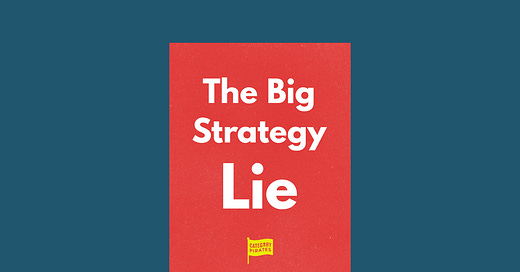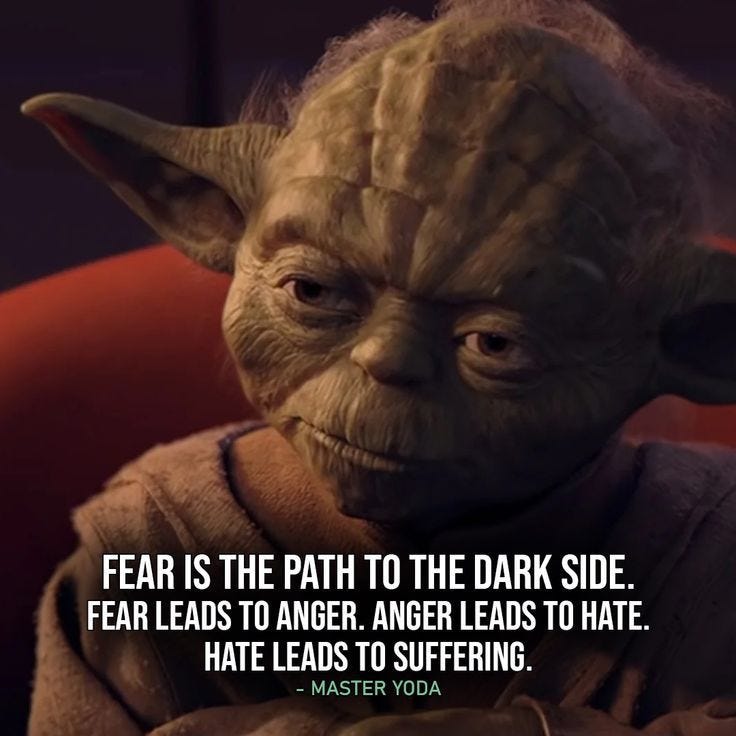The Big Strategy Lie: Why Strategy Is Not As Complex, Hard, Or Intellectual As You've Been Taught
Simplicity scales. Complexity fails.
Arrrrr! 🏴☠️ Welcome to a paid edition of Category Pirates. This foundational series shares category design principles, strategies, and actionable frameworks to help you design new and different categories. Thank you for reading. And of course, forward this mini-book to anyone who needs to hop aboard the Pirate ship.
Dear Friend, Subscriber, and Category Pirate,
If it’s smart, it (must be) complex. The more complex the domain, the smarter you must be to do it. Right?
Right.
Becoming a neurosurgeon in the US requires immense dedication — it's a minimum 15-year journey. After a bachelor's degree, you'll need an MD or DO degree, followed by a year of general surgery internship and a grueling 5-7 years of neurosurgery residency. Finally, you’ll need certification by the American Board of Neurological Surgery. Only then do you get to scratch around in people’s cerebellums.
Because the human brain is seriously complex.
(Contrary to popular belief.)
Want to listen to this mini-book instead? Head to the audiobook version, available to all paid pirate subscribers. (And scroll down for the one-page strategy narrative template.) 🎧
Business strategy is not complex.
Now, before we go any further, you should know what you’re getting into. You see, this is not (just) a newsletter. It’s a manifesto. It's designed to attack the status quo and propose something different in the realm of business strategy. Reading what follows might require some considering, suspending judgment, thinking, and personal pirating on your behalf.
We know most people don’t want to read stuff like this. Most people want to read happy horse shit stuff that validates what they already think, believe and value. (Harsh? Maybe. True 🤔?)
Today, let’s pop the hood on how the prestigious world of strategy consulting propagates and perpetuates the lie that only the "elite" can do strategy.
And as you read, let this idea swizzle in your dorsolateral prefrontal cortex.
Simplicity scales.
Complexity fails.
"Lying with the truth" dominates the strategy world.
One of Pirate Eddie’s mentors, Steve Carlotti—former CEO of The Cambridge Group who has held leadership roles at McKinsey, Prophet, and Nielsen—was on a panel at a conference. He was asked a question about his time at McKinsey. After Steve answered, another panelist jumped in with, “I was at McKinsey as well, and I think…”
Here’s the funny thing:
Steve was a director at McKinsey for 20 years and one of its most senior partners.
The other guy was at McKinsey for 2 months as a summer intern.
Lasting 20 years at McKinsey is no small feat for a famously up-or-out culture. Steve is one of the smartest people Pirate Eddie has ever met and a great strategist. He left every conversation with Steve feeling smarter, thinking clearer, and becoming more hopeful and confident.
That's because Steve had a knack for making complex situations much simpler.
We don't know if the other panelist was as smart, clear-minded, and confidence-inspiring as Steve. But here's the mind-blowing part: Both men claimed the "McKinsey" acclaim and status, despite their vastly different tenures. If you didn't dive deeper into their backgrounds, you might assume they both had McKinsey strategy chops.
What does this tell us?
The strategy world is designed to make you feel bad (dumb) about yourself.
Not every conversation with a strategy consultant makes you feel smarter, clearer, and more confident about what action to take next.
In fact, most of these conversations are purpose-built to leave you feeling like they are smarter. They leave you feeling the world is more complex, not simpler. They leave you feeling less confident and hopeful unless you have them in your corner. That's because many strategy consulting firms (and strategy academics) are in the "bullsh*t baffles brains" business.
Consider a not-to-be-named consulting firm's internal thought leadership publication.
This is the first thing you read:
“This issue's cover story poses a formidable challenge to leaders: if they can successfully elevate productivity amid today's converging disruptions, they might not only position their organizations to outperform their peers but also help make 2024 the advent of future abundance.”
We asked ChatGPT to critique this writing (word salad) for simplicity.
It replied:
“The sentence is quite dense, packing multiple ideas into a single sentence. This can make it harder for readers to quickly grasp the main point. The use of phrases like "converging disruptions" and "the advent of future abundance" adds to the complexity and may not be immediately clear to all readers.”
We then asked ChatGPT to rewrite the sentence so an 8th grader could understand it.
It came back with this:
“Business leaders need to work smarter to beat rivals and make more money in the future.”
Much easier to understand!
Why does this matter?
No one—not one single person—can execute a strategy they do not understand.
Not only is this a blinding glimpse of Obvious insight, but it inspires far less awe and pricing power. The words say nothing about the category. It focuses on the competition and points to the company’s abundance and outcomes, not the customers.
It’s the very definition of Competition Derangement Syndrome (CDS).
Now, notice how the words make you feel.
They make you feel anxious.
They make you feel ignorant.
They make you feel scarcity.
The first two are understandable. There are many things to be concerned about in business. There are many things to learn in business.
But the last one makes us Pirates angry. 😡
A scarcity mindset leads to zero-sum thinking. Zero-sum thinking leads to CDS. CDS leads you to fight over the 24% of category economics, which destroys great businesses, great companies, and promising careers.
Too many entrepreneurs, creators, and executives believe they can’t do strategy themselves.
This is what makes the Pirate Ship really mad.
Because it simply isn’t true.
Anyone can build a great strategy.
No one should outsource strategy to a third party, much less fresh-out-of-school MBAs who may not have ever had a real job. (In fact, it took Pirate Eddie until his third decade of consulting to finally get an operating role.) But for you to believe us, we first need to expose the five big strategy lies.
So grab a seat and your favorite rum—we're diving in.
🏴☠️ Exciting Pirate news: We just launched the free Strategy Sprint email course, filled with business strategy buried treasures. Check it out, and let us know what you think. Arrrrrr! 👇
The 5 Big Strategy Lies
Let’s cut through the BS by breaking down the most common strategy lies.








